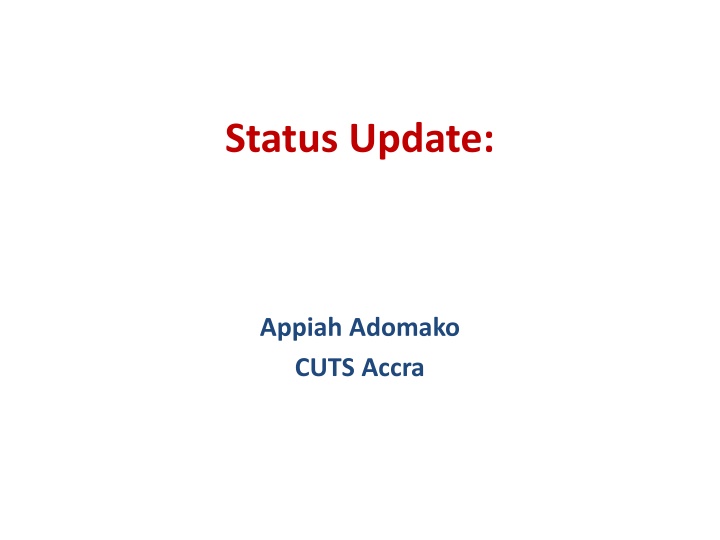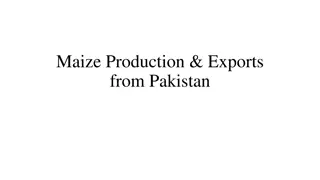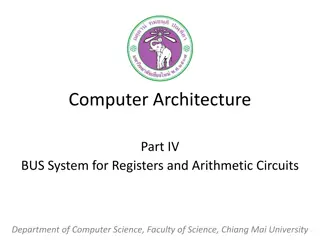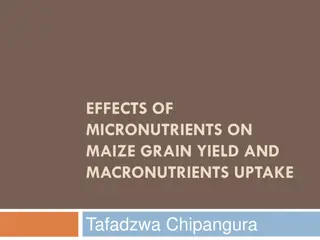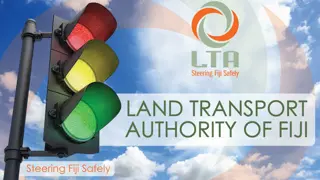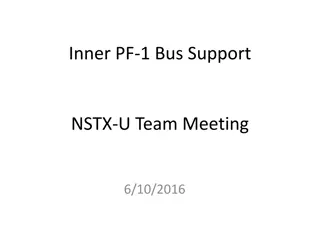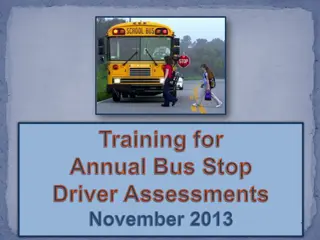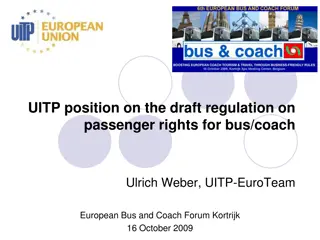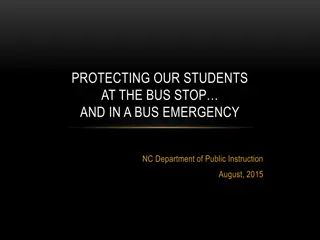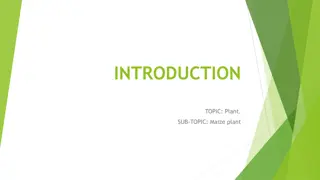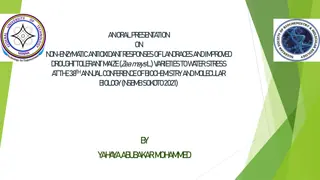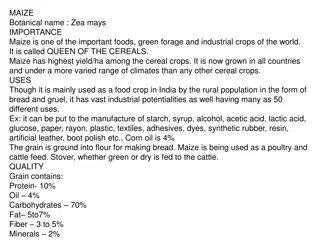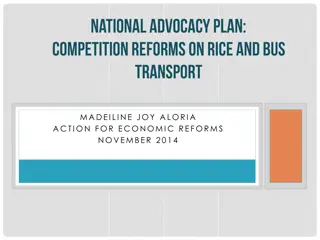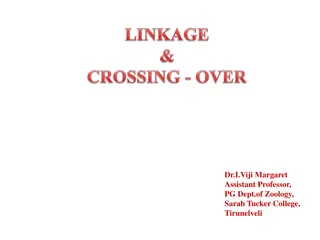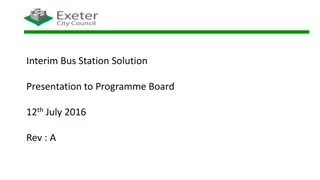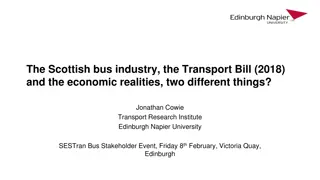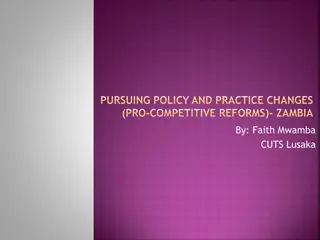Enhancing Competitive Practices in Maize and Bus Transport Sectors
The report delves into key issues and emerging trends in the Maize and Bus Transport sectors, highlighting the impact of pro-competitive reforms and private sector involvement. It addresses challenges such as anti-competitive practices, lack of benefit for farmers from government subsidies, and the need for greater private sector engagement in infrastructure and service provision. Recommendations include pursuing a pro-competitive agenda through media campaigns, stakeholder meetings, and policy brief submissions to enhance sectoral competitiveness.
Download Presentation

Please find below an Image/Link to download the presentation.
The content on the website is provided AS IS for your information and personal use only. It may not be sold, licensed, or shared on other websites without obtaining consent from the author.If you encounter any issues during the download, it is possible that the publisher has removed the file from their server.
You are allowed to download the files provided on this website for personal or commercial use, subject to the condition that they are used lawfully. All files are the property of their respective owners.
The content on the website is provided AS IS for your information and personal use only. It may not be sold, licensed, or shared on other websites without obtaining consent from the author.
E N D
Presentation Transcript
Status Update: Appiah Adomako CUTS Accra
The sectors Maize and Bus Transport Sectoral Issues 2
Key Emerging Issues from the DCR Staple Food/Maize Pro-competitive reforms in seeds sector is working in the interest of farmers. Private sector s involvement in the sales and distribution of fertilizers have also increased the usage of fertilizers among fertilizers. How can this experience be replicated in other inputs, e.g. credit? Greater thought needed in engaging private sector in infrastructure and service provision (supply-chain) 3
Key Issues Bus Transport 1. Introduction of new regulations and standards in the sector. 2. Competition Reforms in the Bus Transport Industry - Policy Framework 3. National Road Transport Regulatory Authority- a policy prescription 4. Policy Reform on Strengthening Private Sector Operation in Bus Transport 5. Route rationalization 4
Narrowing down for the Sake of Advocacy Maize Sector Possibility of Anti-competitive practices in the transport of the fertilisers (focus on port handling and clearance and internal transportation costs Role of Market Queens in procurement (Challenges faced by farmers) Transport Sector Establishment of National Road Transport Regulatory Authority Politico-economic analysis of low implementation of LI 2180 5
Summing up the findings Maize procurement by the market queens has some anti competitive elements. Farmers are delighted in selling to the market queens Farmers not benefiting from govt subsidy due to anti- competitive practices The presence of many importers has not really brought about competition Transport cost and handling seems to up the final cost 6
Pursuing Pro-Competitive Agenda in the Two Sectors 7
Pursuing Pro-Competitive Agenda in the two Sectors Supplementary research finding completed Media campaign Meeting with relevant stakeholders Submission of policy brief to government and parliamentary select group National orientation workshop on CPL Policy briefs 8
Challenges in the advocacy News of politics dominate the pages of the press People seemed to be satisfied with the status quo Low co-operation from some government officials 9
Overcoming the challenges Using case studies to tell the story to make it sticky Targeting the relevant stakeholders Making use of local languages Quantifying the outcome of the advocacy 10
Traction from the CREW Advocacy The MOTI has started the process of developing the competition policy, citing evidence generated from CREW CUTS has become knowledge partner to the MOTI on CPL 11
Areas of Future Research-demand driven MOTI wants to CUTS to do a study to understand competition in the banking sector CUTS would also consider Competition issues in Public Private Partnership Competition issues in the cement sector 12
Thanks for your attention! apa@cuts.org 13
